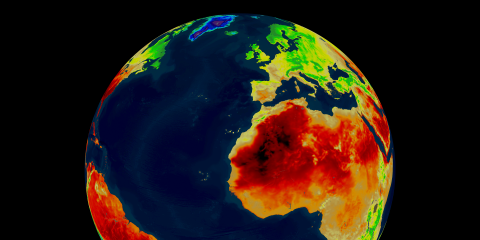Summer Undergraduate Research Placement in Biogeochemical Modeling at the University of Oxford
Project title: Reducing biases in the UK Met Office Earth System Model
Supervisor: Samar Khatiwala (@email)
Project description: Earth System Models (ESMs) are the primary tools used for understanding the global climate system and predicting its future evolution under anthropogenic forcing. However, they suffer from major parametric uncertainties leading to significant biases that cause errors in key metrics such as climate sensitivity and future projections of marine ecosystems and permafrost (Yool et al., 2021). Reducing such biases for the next IPCC Assessment, which is now getting underway, is thus a priority for the Met Office but has heretofore been unfeasible because of the extreme cost of spinning-up ESMs to
equilibrium. Such a state is essential for comparing model output to observations, and systematic tuning requires repeatedly spinning up the model with different parameters.
However, a new computational technique (Khatiwala, Science Advances (in press)) greatly reduces the cost of spin-ups, making it feasible to optimize ESM parameters. This project will apply the technique to improve the representation of key processes in NEMO-MEDUSA and JULES, the ocean physical-biogeochemical and land vegetation components, respectively, in the Met Offices' UKESM model. The algorithm has already been implemented and demonstrated to work in both NEMO-MEDUSA and JULES. The project will involve close collaboration with Met Office scientists.
This placement is nominally for 8 weeks over summer and come with a bursary of up to £3,500 funded by the Met Office Academic Partnership. The work can be performed remotely and you do not need to be in Oxford for the duration of the placement. If you're interested in applying or learning more about the project please get in touch with me at @email.
Requirements: While specific prior knowledge of biogeochemical modeling is not necessary, an interest in environmental problems and strong computing/programming skills are essential. At the very least you must be highly proficient in Python and working in a linux/unix environment. Knowledge of other languages such as Matlab and C would also be helpful.


